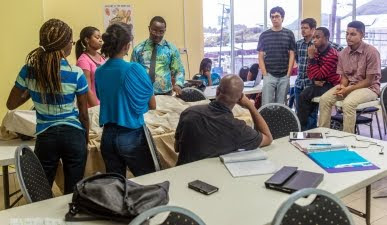
If you’re not ready to waste another year of your life waiting to get into a U.S. medical school, you probably should consider medical education abroad. But there are so many misconceptions that discourage you and not pursue that option. Today’s post will inform you of some FAQs about medical education abroad.
1. Is it easier to study medicine abroad?
What’s easier is to get into a medical school abroad. For example, Caribbean medical schools like AUSOM do not require MCAT secure. They check your general academic performance and intent to study medicine. The competition is much lower and hence, you can easily get into a medical school abroad.
But medical education abroad is almost similar to what you study in U.S. or Canada. The course is very much similar, and you’re regularly tested for what you learn. Medical school is hectic, no matter where you choose to study.
2. Would you be at a disadvantage as compared to other students who studied in a U.S. medical school?
Technically, you’re not. If you study abroad in an accredited medical school, all you need is to pass an extra exam to be eligible to practice in U.S.A. Most of the top foreign schools prepare you specifically for that exam and hence if you study well, you’ve pretty much equal opportunities as any other medical student will have in the United States.
3. Will it cost lesser to study abroad?
Usually, the cost of medical education in a Caribbean medical school is much lesser than that of U.S. medical schools, even if you consider the expenses for studying abroad. So, yes. Get more information here about US clinical rotations.
4. Can you practice in U.S. after you complete the course?
Yes, you can. The process is, however, a bit different from the usual one if you study in a U.S. medical school. First of all, you need to make sure you graduate from a medical school that holds an accreditation and is listed in IMED (International medical education directory). Then you will have to pass to USMLE (United States Medical Licensing Examination) exams. It has two levels – USMLE level 1 and USMLE level 2. You will need to clear both of these. You’ll also need an ECFMG (Educational Commission for Foreign Medical Graduates) certification. And then you’ll be eligible to get into a U.S. medical residency program. You’ll need to complete a year in this program, and then you can practice like any other medical graduate in the U.S. Note that USMLE exams are essential for any medical graduate in the United States.
I hope it cleared a lot of questions you had regarding medical education abroad. If you have any other question, feel free to ask. Do your research well before you decide which medical school you get into. It’s crucial for a good future.
No comments:
Post a Comment